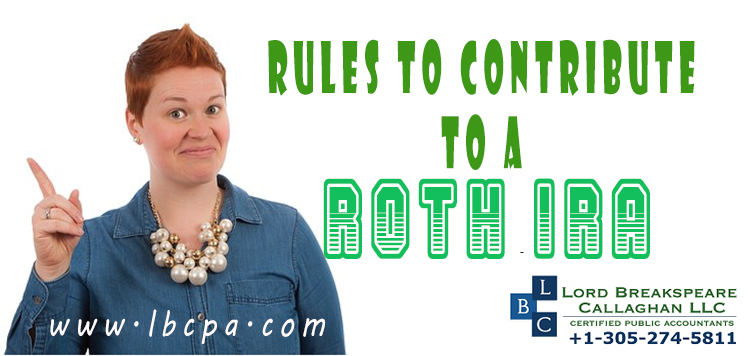LBCPA News 
Click here to go back
-ROTH IRA Contributions

Confused about whether you can contribute to a Roth IRA? The IRS suggests checking these simple rules:
- Income To contribute to a Roth IRA, you must have compensation (e.g., wages, salary, tips, professional fees, bonuses). Your modified adjusted gross income must be less than:
- $196,000 — Married Filing Jointly.
- $10,000 — Married Filing Separately (and you lived with your spouse at any time during the year).
- $133,000 — Single, Head of Household, or Married Filing Separately (and you did not live with your spouse during the year).
- Age There is no age limitation for Roth IRA contributions. Unlike traditional IRAs, you can be any age and still qualify to contribute to a Roth IRA.
- Contribution Limits In general, if your only IRA is a Roth IRA, the maximum current year contribution limit is the lesser of your taxable compensation or $5,500 ($6,500 for those age 50 or over). The maximum contribution limit phases out if your modified adjusted gross income is within these limits:
- $186,000-$196,000 — Married Filing Jointly or Qualifying widow(er)
- $0-$10,000 — Married Filing Separately (and you lived with your spouse at any time during the year)
- $118,000-$133,000 — Single, Head of Household, or Married Filing Separately (and you did not live with your spouse)
- Contributions to Spousal Roth IRA You can make contributions to a Roth IRA for your spouse provided you meet the income requirements.
* Note - threshold amounts listed above are for tax year 2017.
If you have any questions regarding accounting, domestic taxation, essential business accounting, international taxation, IRS representation, U.S. tax implications of Real Estate transactions or financial statements, please give us a call at 305-274-5811.
Source: Thomson Reuters






